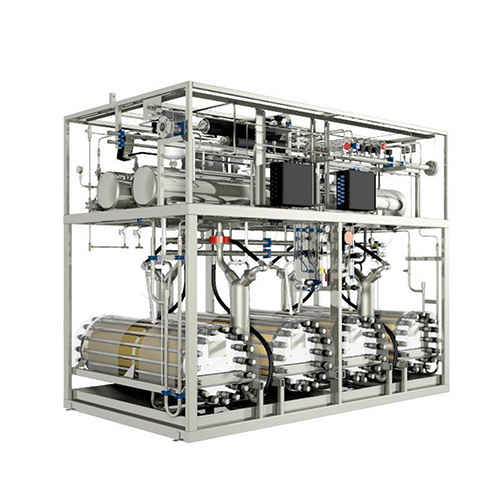The future market outlook for hydrogen production from electrolytic water technology is widely favoured, especially with the increasing global demand for clean energy and the drive towards carbon neutrality targets.The following is a prospective analysis of the hydrogen from electrolytic water market:
- Policy support and carbon neutrality targets
An increasing number of countries and regions across the globe have set up carbon neutral targets to promote a cleaner energy mix. Many governments have introduced incentives to accelerate the development of the hydrogen industry, including subsidies and investment tax incentives.
The European Union, China, Japan, and South Korea have made hydrogen energy a national strategic priority, and have committed to investing large sums of money in the future to support research and infrastructure development of hydrogen energy technology.
- Increased demand for green hydrogen
Hydrogen produced by electrolysis of water is ‘green hydrogen’ because electrolysis using renewable energy sources (e.g., wind, solar) does not emit carbon dioxide and is more environmentally friendly than traditional fossil fuel hydrogen production.
Many high-emission industries (e.g. steel, chemicals, petrochemicals, etc.) need to replace cleaner fuels, and green hydrogen is an ideal solution for a wide range of applications in industrial processes, transport, power generation, and more.
- Technological advances and cost reductions
As electrolysis technologies (e.g., PEM, AEM, and solid oxide electrolysis) continue to advance, the efficiency of electrolysers continues to improve, and system integration and equipment costs gradually decrease.
In the future, with the advancement of large-scale electrolysis hydrogen production projects, the unit cost of electrolysis hydrogen production is expected to gradually decline, making the economy of hydrogen production from electrolytic water continue to improve.
- Rapid growth of renewable energy
Hydrogen from electrolysis requires electricity, and the rapid development of renewable energy for hydrogen from electrolysis provides a low-cost, clean power source.
Wind, solar and other renewable energy sources often produce excess power during off-peak hours, and using this excess power for hydrogen electrolysis can effectively utilise resources and reduce power waste.

- Application Scenario Expansion
Hydrogen from water electrolysis is not only used in industry, but also in many fields such as transport (fuel cell vehicles, ships, trains, etc.), energy storage (hydrogen energy storage), and home power supply.
In the power system, hydrogen can be used as a means of energy storage to provide a stable power supply in the event of large fluctuations in renewable energy sources.
- Competitive advantages and environmental effects
As environmental regulations become increasingly stringent, hydrogen produced from electrolytic water, as a carbon-emission-free method of hydrogen production, will have a greater advantage in international competition in the future, especially in markets where carbon footprints are strictly required for export products.
Hydrogen generates water when used as a fuel and produces no polluting emissions, so it has a positive significance in reducing environmental pollution and improving air quality.
- Market forecasts and development potential
According to several organisations, the global green hydrogen market could reach hundreds of billions of dollars by 2030. It is projected that by 2050, hydrogen energy may account for a significant rise in the global energy system and become one of the major forms of energy.
The global demand for electrolytic water to hydrogen plants is expected to grow significantly in the future, driven by major markets such as China, the EU, and Japan.
Challenges and future trends
Despite the promising market outlook, hydrogen production from electrolytic water still faces challenges such as electrolysis efficiency, production costs, hydrogen storage and transport. However, with advances in electrolysis technology and economies of scale, hydrogen production from water electrolysis is expected to achieve more efficient and cost-effective applications, contributing significantly to global clean energy development and carbon neutrality goals.